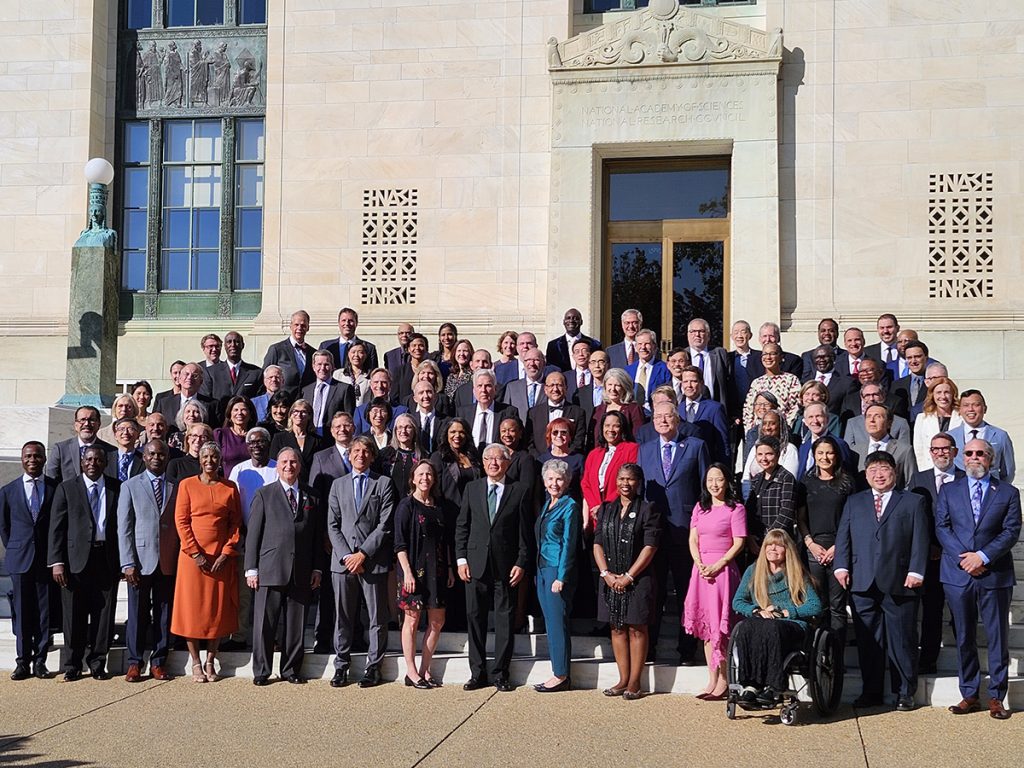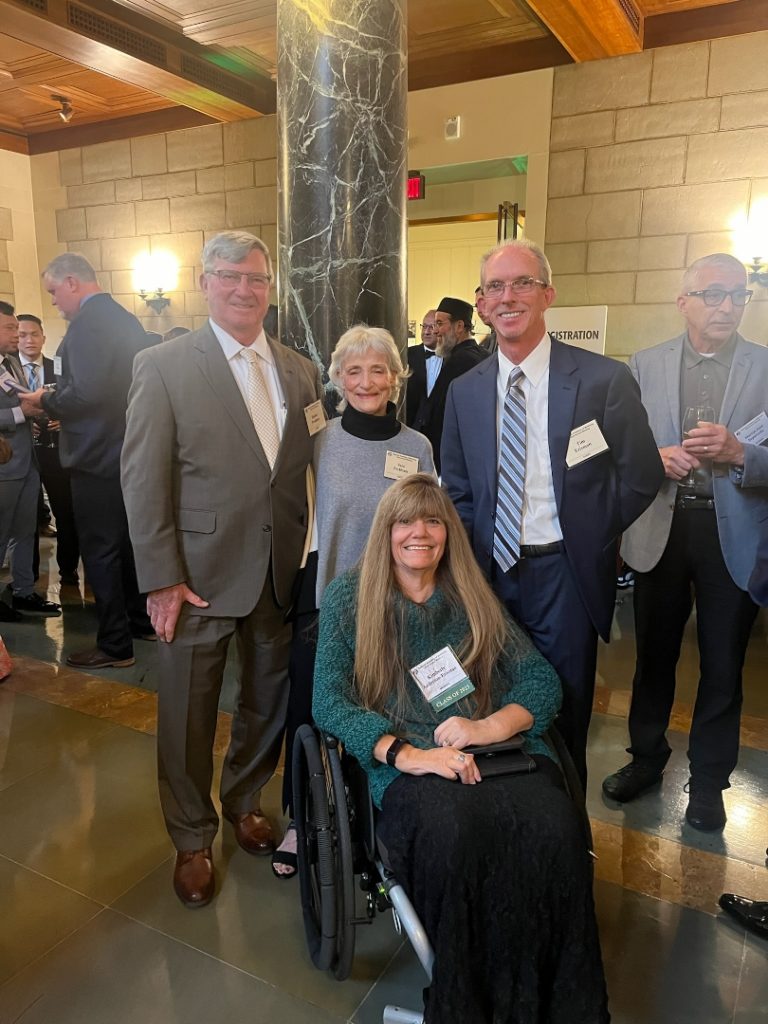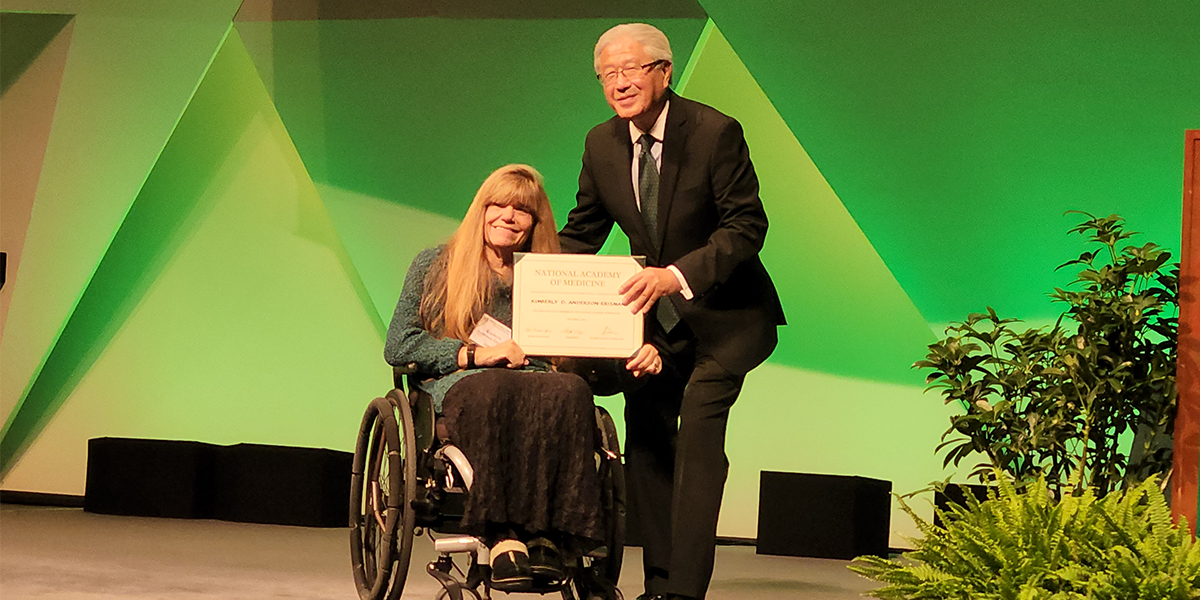Two decades ago, as a post-doc at University of California-Irvine, FES Center investigator Kim Anderson, PhD, transformed the way researchers approached spinal cord injury (SCI) research.
At that time, most SCI research focused on thoracic injuries and evaluating walking. But Anderson, who has a spinal cord injury herself, asserted that there were many other problems important to people with spinal cord injuries, such as regaining upper extremity function, bladder, bowel, and sexual function.
It was an insight that would make Anderson a pioneer in SCI research.
This October, Anderson was inducted into the National Academy of Medicine (NAM), one of the highest honors in health and medicine, adding to her distinctions as a researcher and advocate for SCI research.
Anderson is also Director of the Northeast Ohio Regional Spinal Cord Injury System (NORSCIS) based at the MetroHealth Rehabilitation Institute and operated with Case Western Reserve University (CWRU). And, she is a professor in the Department of Physical Medicine and Rehabilitation at MetroHealth and the CWRU School of Medicine, and at MetroHealth’s Center for Rehabilitation Research.
Anderson’s path to transform SCI research and rehabilitation began in 2003.
“I realized researchers were missing out on a lot of areas of research that were important to people with spinal cord injury,” she explains.
When a colleague confided he wouldn’t change his research priorities until there was data indicating he should, “I took it upon myself to get that data,” she says.
Anderson’s work culminated in a critical study published in the Journal of Neurotrauma titled, “Targeting recovery: priorities of the spinal cord-injured population.” The 2004 article detailed Anderson’s study of close to 700 people with SCI and found that regaining arm and hand function was most important to quadriplegics, while regaining sexual function was the highest priority for paraplegics, and improving bladder and bowel function was of shared importance to both groups.
Though her colleagues were surprised, “they embraced it and started changing what they were doing,” Anderson shares.
The groundbreaking work solidified Anderson’s commitment to ensure that lived experience always guides SCI research priorities. And this dedication is among the reasons she was elected to the National Academy of Medicine in 2023. Throughout her career, Anderson has focused on obtaining the perspective of people living with SCI on various aspects of research.
This fall, Anderson was officially inducted into the NAM, one of 100 members in the class of 2023, and bringing NAM membership to more than 2,400 individuals.

Founded in 1970 as the Institute of Medicine (IOM), NAM is one of three academies that make up the National Academies of Sciences, Engineering, and Medicine in the United States. NAM is charged with advising the US government on national health policies, and election to NAM recognizes individuals who have demonstrated outstanding professional achievement and commitment to service.
As a member of the class of 2023, Anderson was involved in 2024 nominations. She was also invited to participate in an interest group working to establishing function as a third indicator of health along with morbidity and mortality. And she was asked to present on how to include lived experience when developing function-focused outcome measures.
“It’s incredibly humbling and a bit surreal to be considered in that caliber of people,” Anderson says of her NAM election. “Especially when you consider that some NAM members authored the textbooks I learned from in grad school.”
Anderson is part of a small contingent of Cleveland researchers and clinicians who have been elected members to a national academy.

The group includes Anderson’s colleagues John Chae, MD, MetroHealth’s Senior Vice President and Chief Academic Officer, a physiatrist and member of NAM; and biomedical engineer Hunter Peckham, PhD, co-director of the MetroHealth Rehabilitation Institute and Founder of the Institute for Functional Restoration at CWRU, who is a member of NAE. Both Chae and Peckham traveled to Washington for Anderson’s induction.
Anderson says the lifelong honor could afford her the opportunity to interact on a global scale when it comes to advancing SCI research and rehabilitation.
“I believe all researchers have a responsibility to interact with the individuals that are living with the disease or condition they are studying,” Anderson says, “as they’re the experts in that lived experience.”







